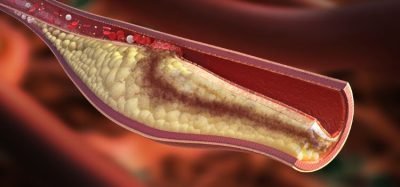Clinical trial to test promising new treatment for chronic cough
Posted: 14 June 2016 | | No comments yet
If approved, AF-219 would be the first new cough drug in 50 years and offer hope to the millions of people living with chronic cough…


The National Institute for Health Research (NIHR) is to participate in a clinical trial to test a promising new treatment for chronic cough.


If approved, AF-219 would be the first new cough drug in 50 years and offer hope to the millions of people living with chronic cough for whom few, if any, effective treatments exist.
A cough is considered to be chronic when a patient has experienced coughing for eight weeks or more, with many patients living with the condition for years and even decades without effective treatment. Some patients experience coughing that is so severe it can lead to them vomiting or losing consciousness. While it is not known exactly how many people suffer from chronic cough, it is thought to affect around 12-15 percent of the population.
The new drug which could offer relief to those affected by chronic cough is now being tested by the NIHR Translational Research Partnership (TRP) as part of a twelve week clinical trial. AF-219 is being developed by US based biotech company, Afferent Pharmaceuticals. The trial involves 200 patients at 47 sites in the UK and US. Working with the NIHR, Illingworth Research is managing the UK study sites for this trial on behalf of Afferent.
AF-219 blocks the P2X3 receptors
AF-219 works by selectively blocking the P2X3 receptors stopping the mechanism by which certain airway nerves become hyper-sensitized. The drug has already been shown to be effective in reducing cough frequency in several clinical studies, including an initial proof-of-concept study involving 24 patients, where AF-219 reduced the number of times people coughed by 75 percent compared to placebo.
Commenting on the new study, NIHR TRP study lead Professor Jaclyn Smith, from the Centre of Respiratory and Allergy at the University of Manchester, said: “We are just beginning to understand how the nerves in the airways are involved in pathologic cough such as chronic cough. With recent developments in the technology to effectively measure coughs and this important new drug, we have started to see real progress in this area.”
Cough monitor
The trial will use a cough monitor that was developed by Professor Smith and her team at University Hospital South Manchester and the University of Manchester in collaboration with UK SME Vitalograph and supported by the NIHR South Manchester respiratory and allergy Clinical Research Facility. The VitaloJAK works by recording the cough sounds and allows the number of coughs in a 24-hour period to be counted and the effects of new therapies to be objectively quantified.
Professor Smith said: “Previously, studies relied on patient reported outcomes, which are not always reliable. This may lead to effective drugs being dismissed due to inaccurate reporting and, I believe, is a contributing factor to the lack of interest from big pharma companies in investigating new cough treatments. For the first time, we have a new drug for which we will be able to demonstrate reliably whether it can reduce coughing in our patients.”









